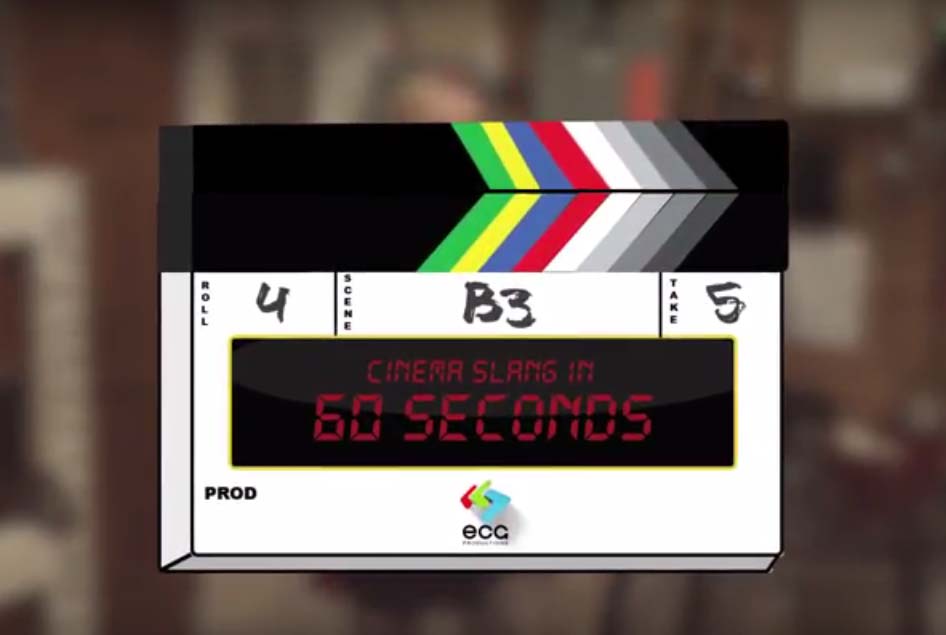The interns at ECG Productions were asked to write, produce, and edit a video that encompassed our creativity, while also showcasing ECG Productions as a company. The result was “Cinema Slang in Sixty Seconds,” an informative video that explains film jargon in simple, humorous ways. As newcomers to the film industry ourselves, we learned a lot about film set terminology while in the process of making this fun promotional video.
“CINEMA SLANG IN SIXTY SECONDS”
INT. STUDIO – DAY
BRIDGET: Welcome to Cinema Slang in Sixty Seconds! In this video, we will define the various camera movements used in film.
CUT TO:
CHRISTINE starts to walk, the camera pans to follow her.
CHRISTINE: Panning is when the camera stays stationary but turns horizontally from one side to another.
The camera pans too fast for her to keep up.
CHRISTINE: No…I can’t walk that fast.
CUT TO:
MO: A whip-pan is when the camera pans particularly quickly, resulting in motion blur.
The camera whip pans to BRIDGET smoking a joint.
BRIDGET: Sup.
CUT TO:
The camera looks down at KELSEY.
KELSEY: A high angle shot is taken from above a subject, creating a sense of “looking down.”
CUT TO:
The camera looks up at MO.
MO: A low angle shot is taken from below the subject, creating the sense of “looking up.”
CUT TO:
CHRISTINE stands a few feet away from the camera. The camera zooms in slowly as she speaks.
CHRISTINE: A zoom involves changing the focal length of the camera lens to give the illusion of moving towards or away from the subject.
The camera is zoomed in very close.
CHRISTINE: How far did you zoom in? You’re zooming in on me super close, aren’t you?
CUT TO:
The camera is focused on KELSEY in the foreground, holding a dart.
KELSEY: A rack focus is a change of the field in focus taking the viewer from one object…
The camera rack focuses to ALEX, up against the dartboard with darts all around his head.
ALEX:…to another that was previously out of focus.
KELSEY makes a motion as if she is throwing the dart.
CUT TO:
The camera tracks with BRIDGET as she walks forward.
BRIDGET: Tracking, or dollying, is when the camera physically follows the subject.
CUT TO:
ALEX: Tilting is when the camera moves up or down.
The camera slowly tilts down, revealing that ALEX is in his boxers.
ALEX: Hey, I said above the waist!
CUT TO:
BRIDGET: That’s all we have for you today. Join us next time for another episode of “Cinema Slang in Sixty Seconds.”

